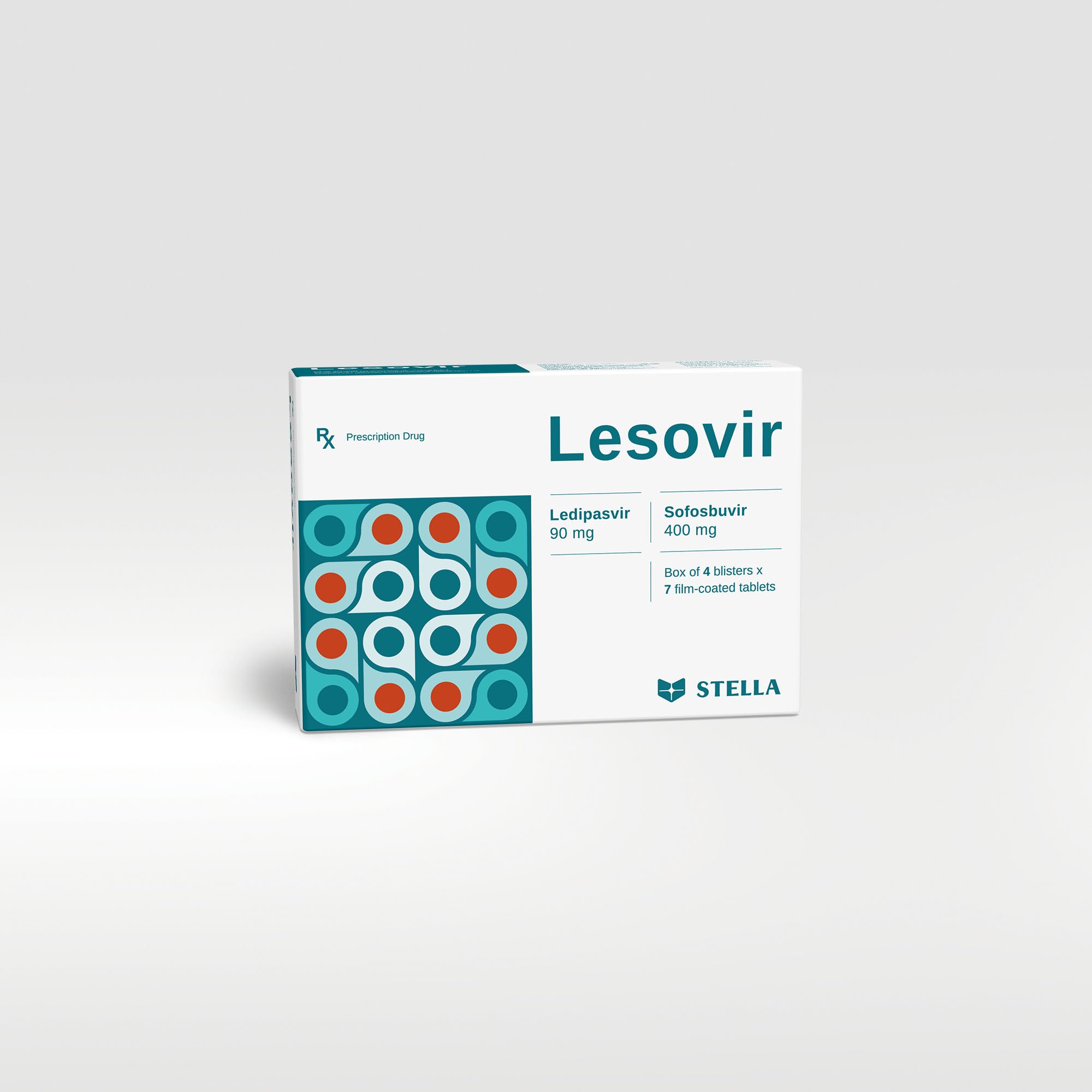Lesovir Rx
Lesovir is a fixed-dose combination of ledipasvir and sofosbuvir which are direct-acting antiviral agents against the hepatitis C virus.
| Pack size | Box of 28 tablets. Bottle of 28 tablets |
| Shelf-life | 24 months |
| Composition | Ledipasvir, Sofosbuvir |
| Dosage forms and strengths | Film-coated tablet (Ledipasvir 90 mg, Sofosbuvir 400 mg) |
Product code :











